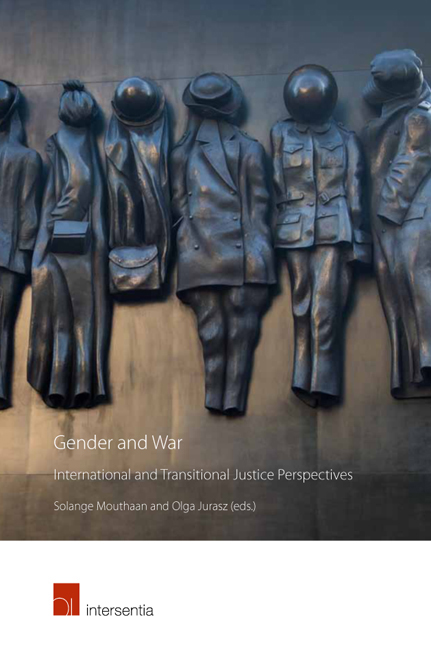Book contents
- Frontmatter
- Contents
- List of Cases
- List of Abbreviations
- List of Contributors
- Introduction
- PART I WOMEN'S INVOLVEMENT IN ARMED CONFLICT
- PART II MEN AND CHILDREN'S EXPERIENCES OF ARMED CONFLICT
- PART III GENDERED EXPERIENCES OF INTERNATIONAL CRIMINAL JUSTICE
- Gender, Enslavement and War Economies in Sierra Leone: A Case Study from the Special Court for Sierra Leone
- Male Victims and Female Perpetrators of Sexual Violence in Conflict
- Prosecuting Sexual and Gender-Based Crimes in the International Criminal Court: Inching Towards Gender Justice
- Reparations for Gendered Harms at the International Criminal Court: Towards Transformative and Gender-Just Reparations?
- PART IV GENDERED EXPERIENCES OF TRANSITIONAL JUSTICE
- PART V CONCLUSIONS
- About the Editors
Prosecuting Sexual and Gender-Based Crimes in the International Criminal Court: Inching Towards Gender Justice
from PART III - GENDERED EXPERIENCES OF INTERNATIONAL CRIMINAL JUSTICE
Published online by Cambridge University Press: 30 March 2019
- Frontmatter
- Contents
- List of Cases
- List of Abbreviations
- List of Contributors
- Introduction
- PART I WOMEN'S INVOLVEMENT IN ARMED CONFLICT
- PART II MEN AND CHILDREN'S EXPERIENCES OF ARMED CONFLICT
- PART III GENDERED EXPERIENCES OF INTERNATIONAL CRIMINAL JUSTICE
- Gender, Enslavement and War Economies in Sierra Leone: A Case Study from the Special Court for Sierra Leone
- Male Victims and Female Perpetrators of Sexual Violence in Conflict
- Prosecuting Sexual and Gender-Based Crimes in the International Criminal Court: Inching Towards Gender Justice
- Reparations for Gendered Harms at the International Criminal Court: Towards Transformative and Gender-Just Reparations?
- PART IV GENDERED EXPERIENCES OF TRANSITIONAL JUSTICE
- PART V CONCLUSIONS
- About the Editors
Summary
INTRODUCTION
Sexual and gender-based crimes are crimes that reflect and reinforce socially constructed gender norms. The rape of women and girls in conflict situations, for example, draws on deeply ingrained ideas of women as the ‘booty’ of war, while sexual violence against men is oft en used to humiliate, ‘emasculate‘, or ‘homosexualise’ the victim. Similarly, the deliberate targeting of school girls by fundamentalist groups expresses a contempt for female education, to give an example of a ‘non-sexualised’ gender-based crime. Due to their serious physical and psychological effects, as well as their social and cultural significance, sexual and gender-based crimes are among the most devastating consequences of war. Despite that, these crimes have historically been overlooked in international criminal tribunals and trivialised in conventions on the laws of war. This is in part because sexual and gender-based crimes are committed primarily against women and girls, a population whose voices ‘have been thoroughly obscured by and within the international legal order’. Other key reasons include a failure to recognise the gravity of sexual and gender-based crimes, and a tendency to view them as ‘private’ matters rather than crimes of the most serious concern to the international community as a whole.
The hard-won gender justice provisions of the Rome Statute, the treaty establishing the International Criminal Court (ICC), provide a means to change this historical path. The Statute gives the ICC power to prosecute a broad range of sexual and gender-based crimes in situations of war, conflict and genocide. By prosecuting these crimes, the ICC can challenge a long-standing pattern of impunity, recognise the harm suffered by the victims, and send a strong message that sexual and gender-based crimes are among the most serious crimes of concern to the international community as a whole. As the ICC approaches its twentieth anniversary, it is timely to ask how effective the Court has been in achieving these goals. Against that backdrop, this chapter examines the ICC's track record in prosecuting sexual and gender-based crimes from 1 July 2002, when the Rome Statute entered into force, until 1 July 2017.
- Type
- Chapter
- Information
- Gender and WarInternational and Transitional Justice Perspectives, pp. 209 - 234Publisher: IntersentiaPrint publication year: 2019

